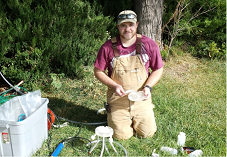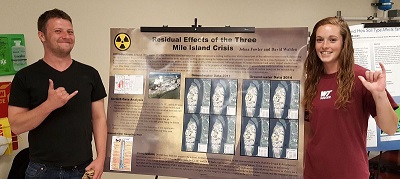Environmental Engineering
Environmental engineering is defined as, "a profession that applies mathematics and science to utilize the properties of matter and sources of energy in the solution of problems of environmental sanitation." In that thinking, environmental engineers work on many, many types of problems that directly benefit people such as:
- Providing safe, reliable, and palatable drinking water
- Safely disposing of or treating wastewater (municipal, industrial, agricultural, etc.)
- Safely disposing of or treating solid and hazardous waste
- Ensuring adequate drainage of urban, suburban, rural areas for purposes of sanitation
- Controlling pollution levels of water, soil, air, and biological media and designing remedial solutions for media already contaminated
- Addressing problems of public health such as disease and industrial health
In short, environmental engineers address many of society's environmental problems through the use of an engineering approach—analysis, design, multidisciplinary thinking.
ABET Accreditation
The undergraduate environmental engineering program at WT is accredited by the Engineering Accreditation Commission of ABET, https://www.abet.org, under the General Criteria and the Program Criteria for Environmental Engineering And Similarly Named Engineering Programs. This means that when you graduate from WT with an environmental engineering degree, your skills will be nationally recognized and sought after. The curriculum is designed to improve your critical thinking, communication skills, mathematical aptitude and the ability to work as a team.
Please navigate through our website to learn more!






